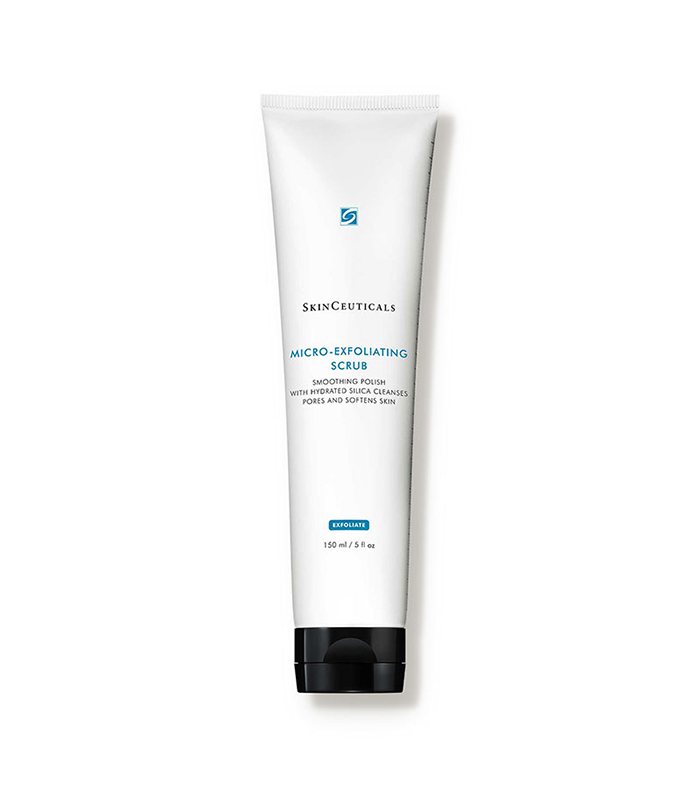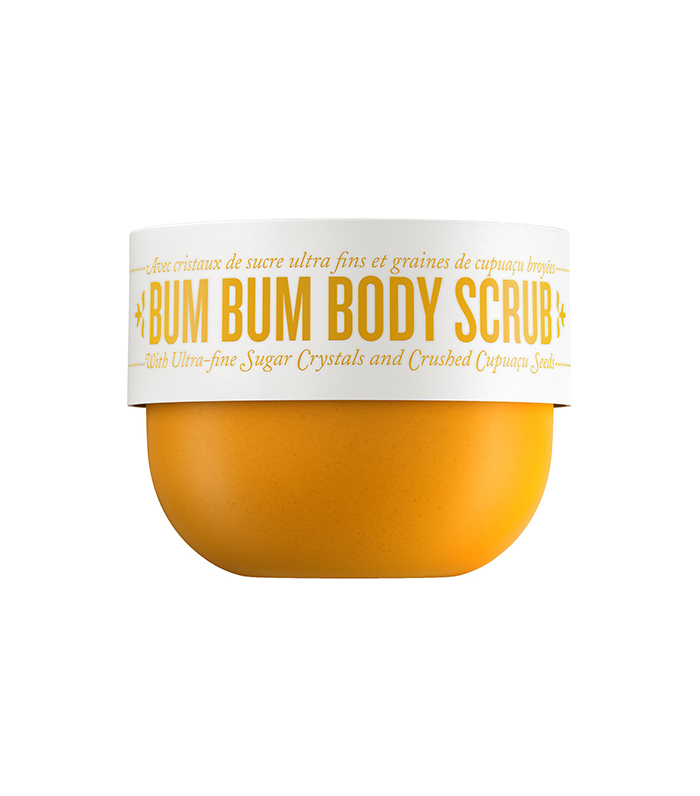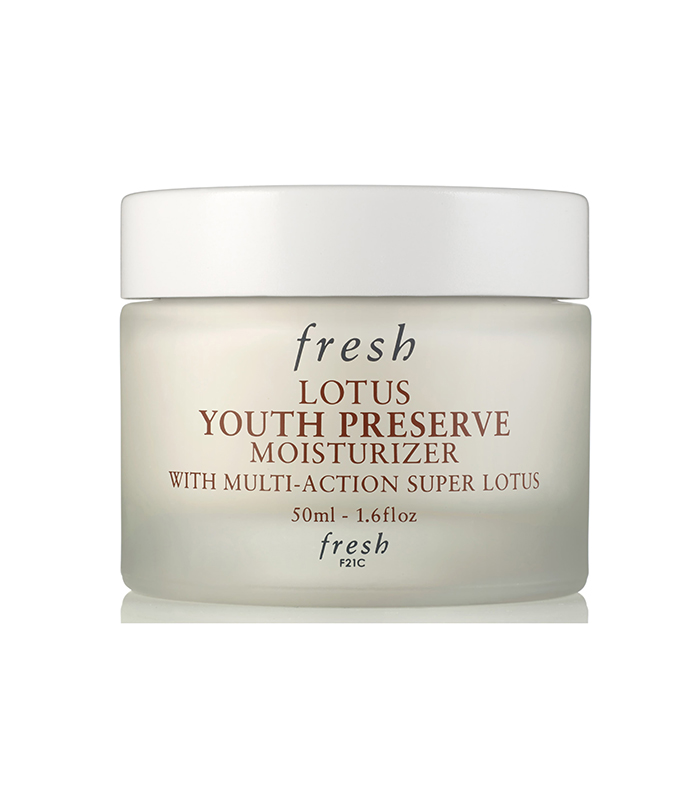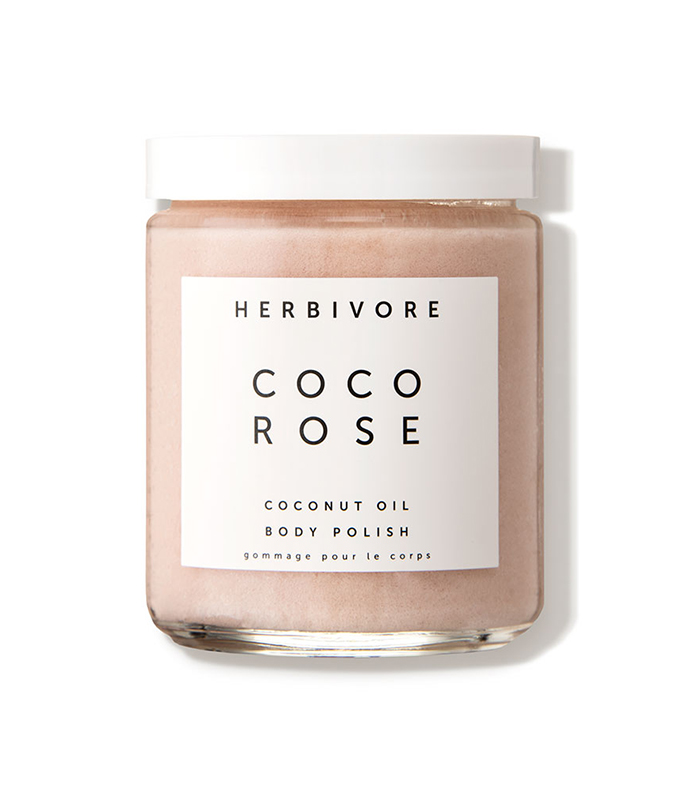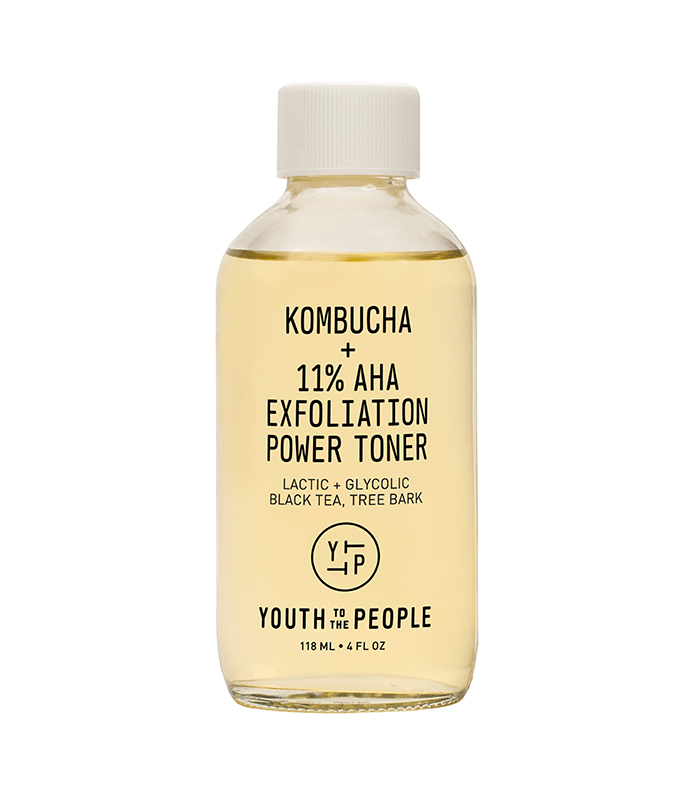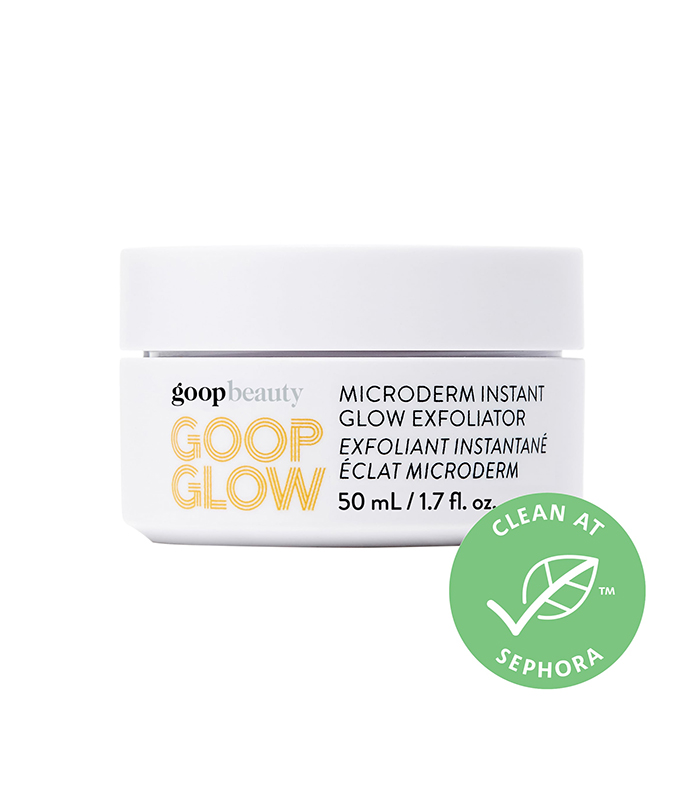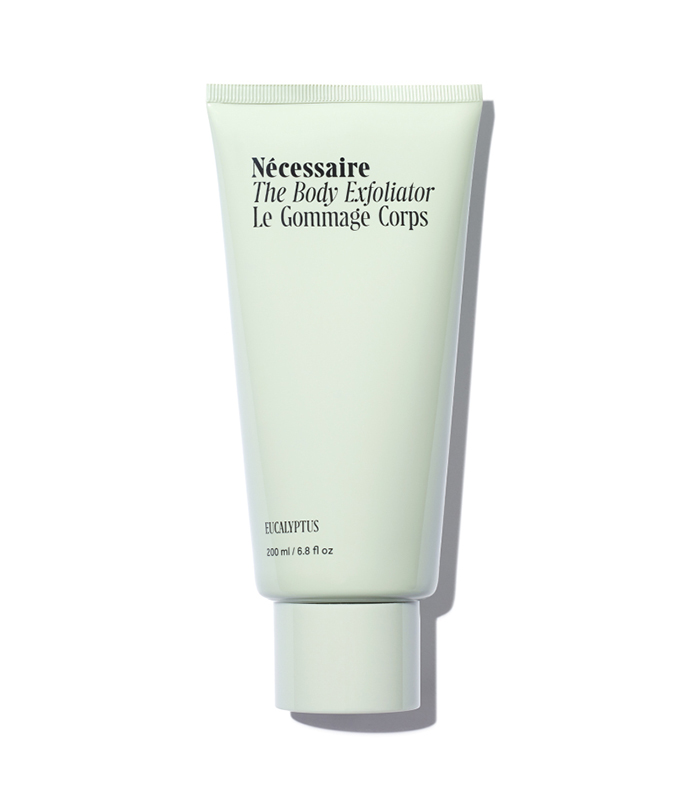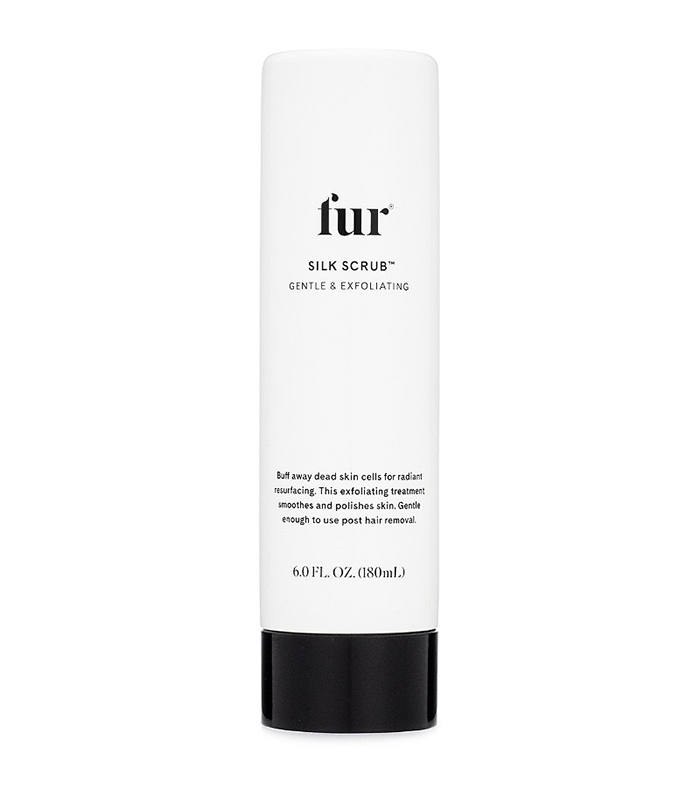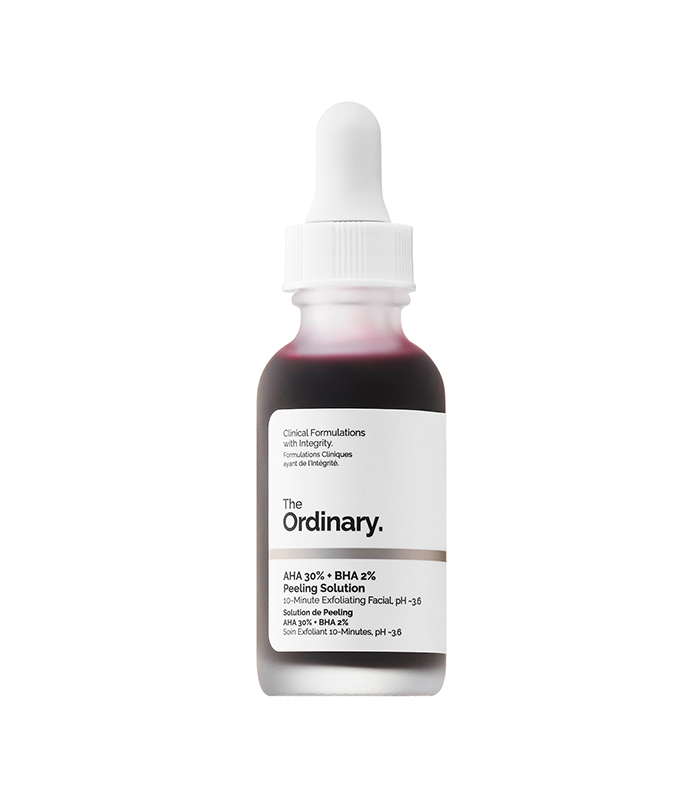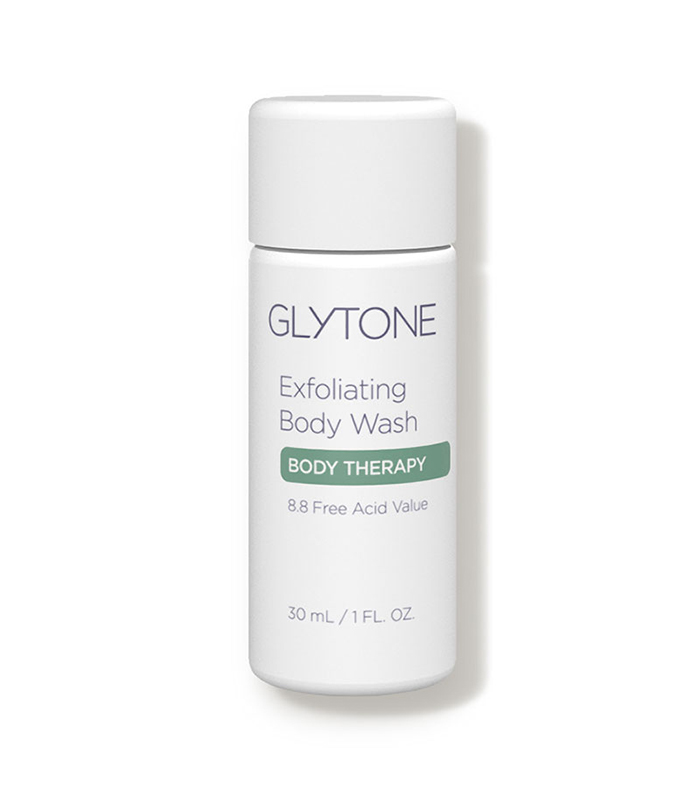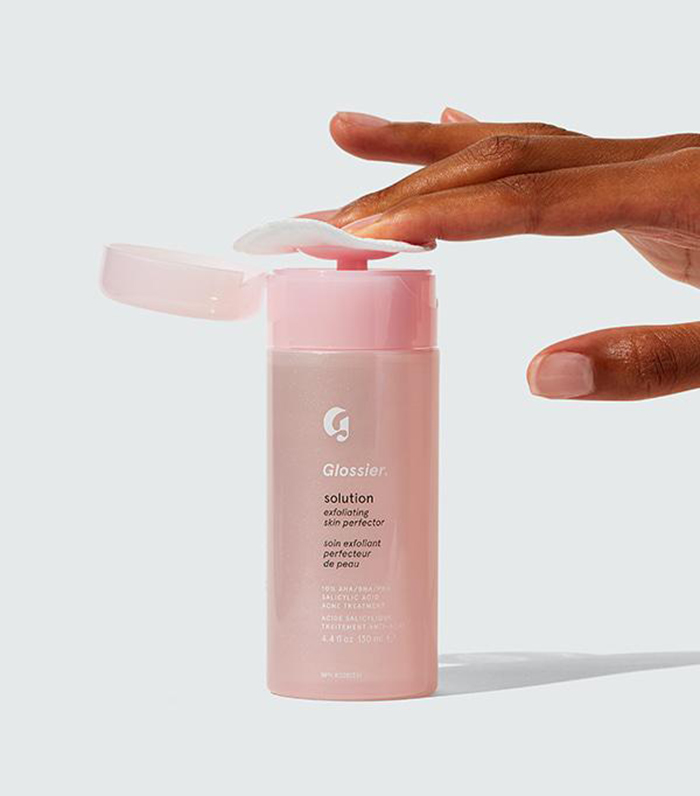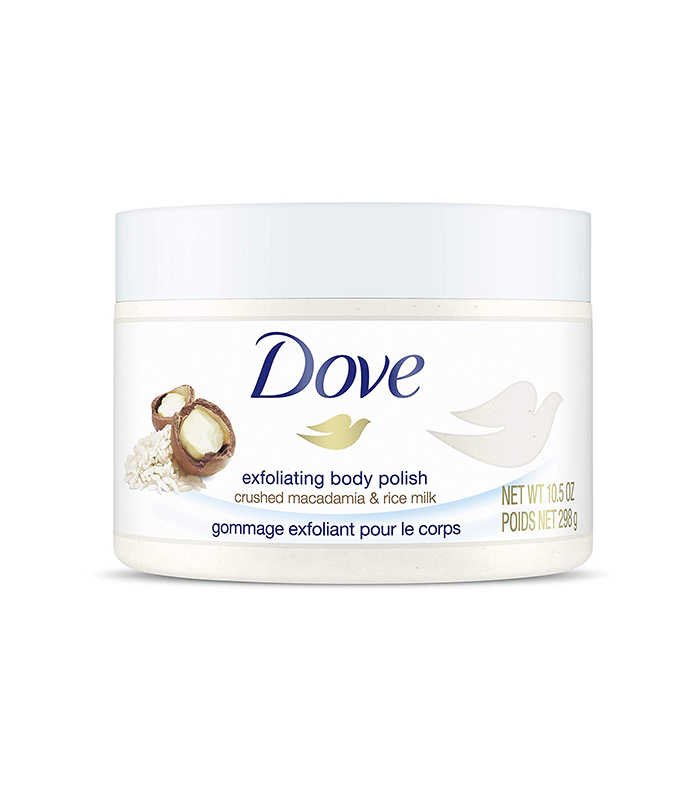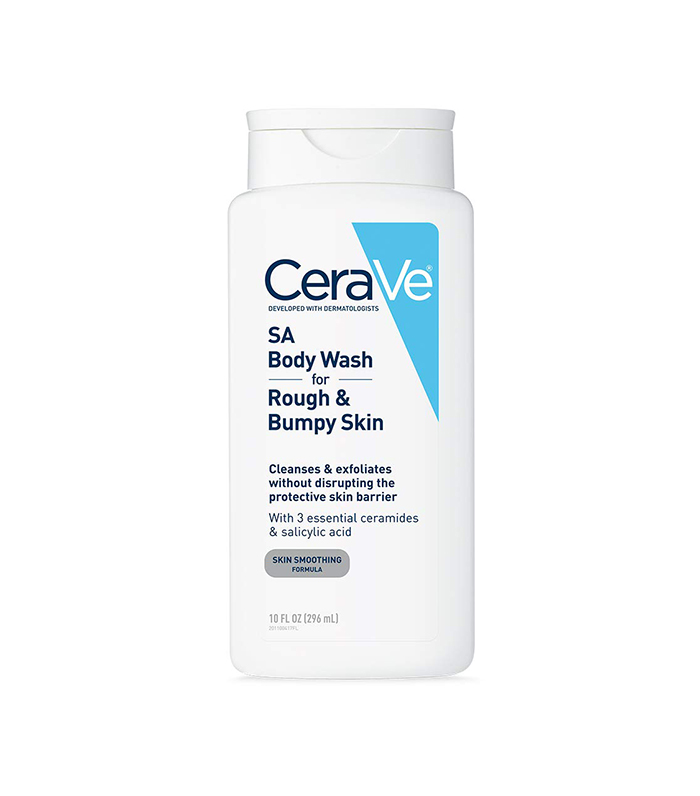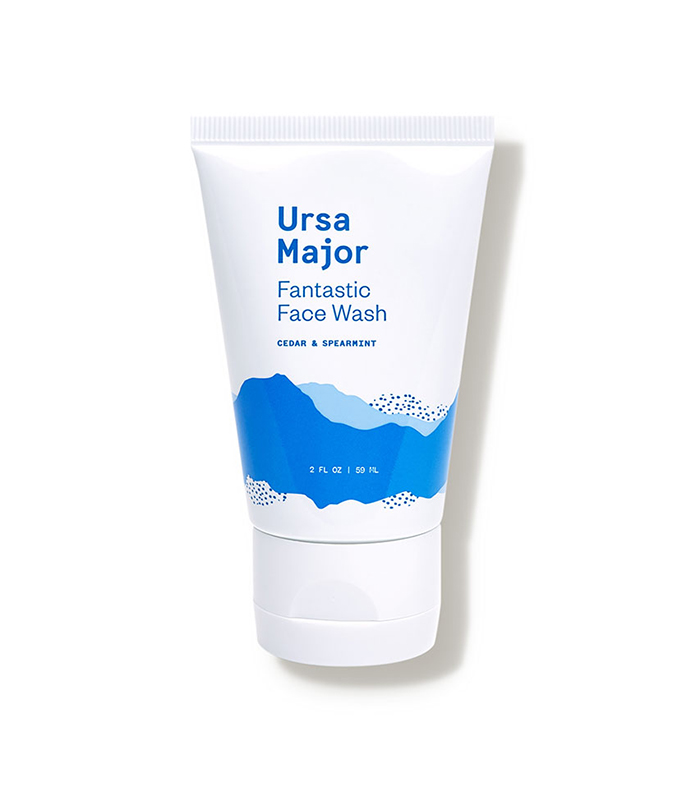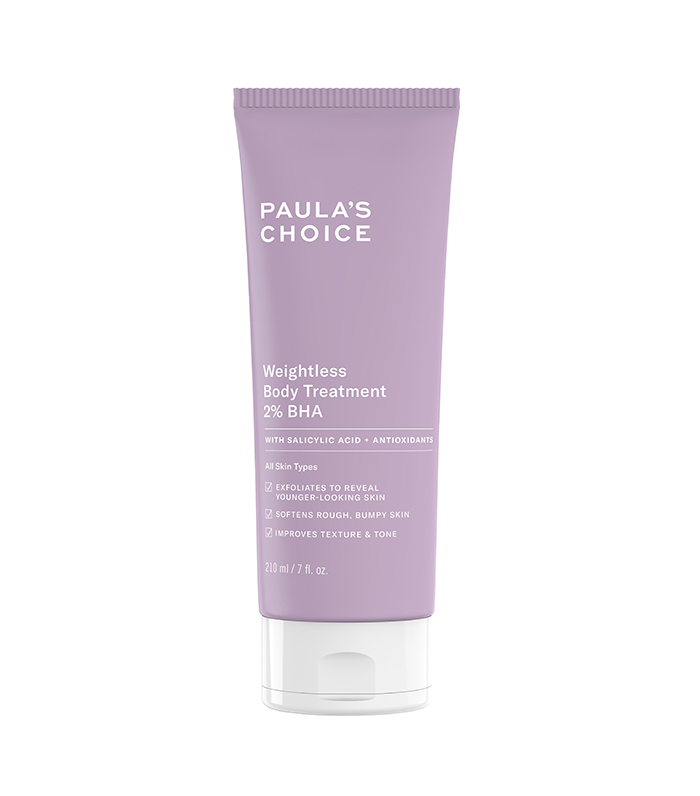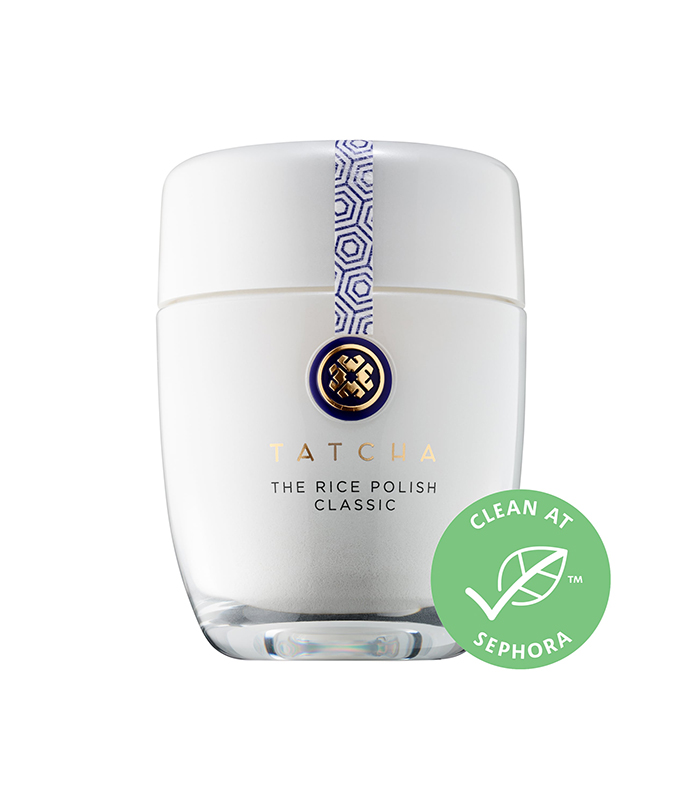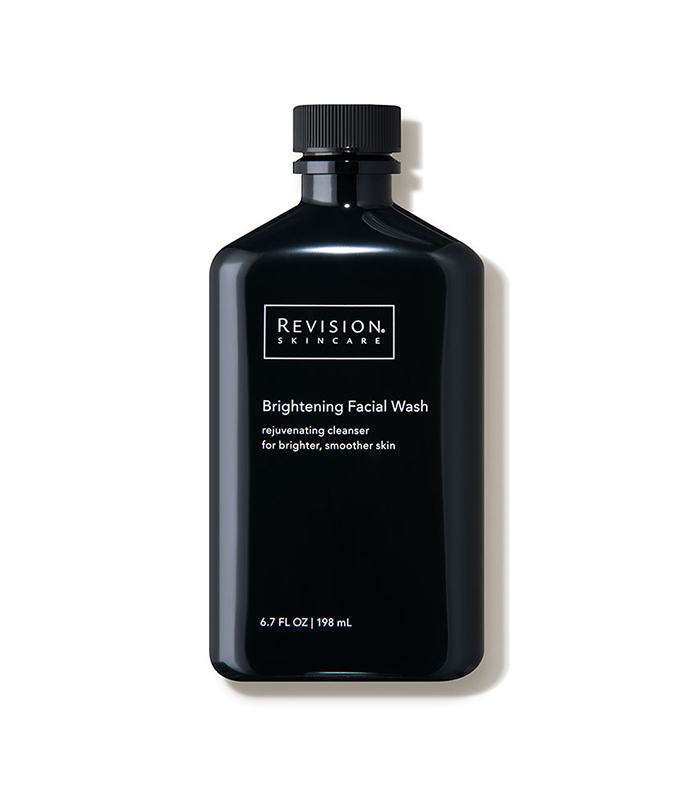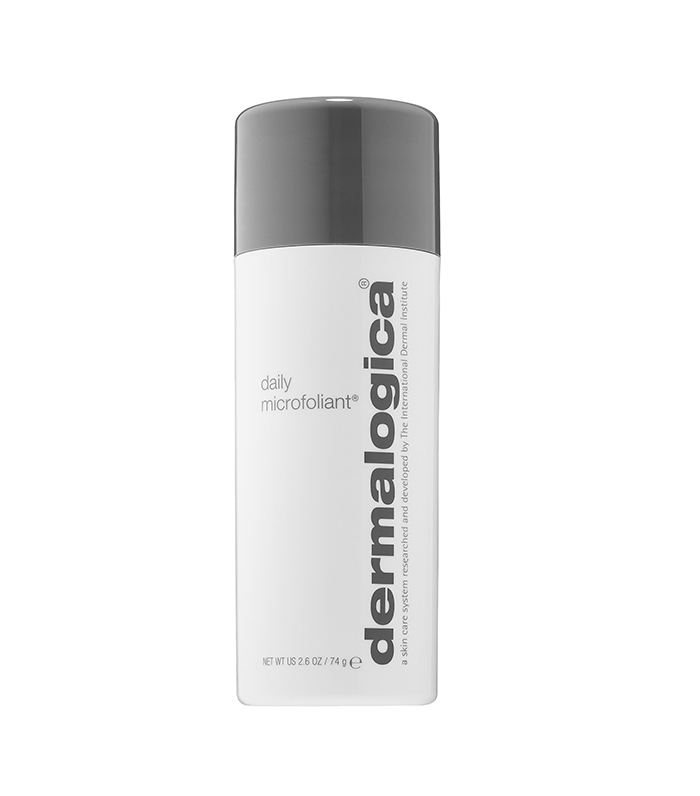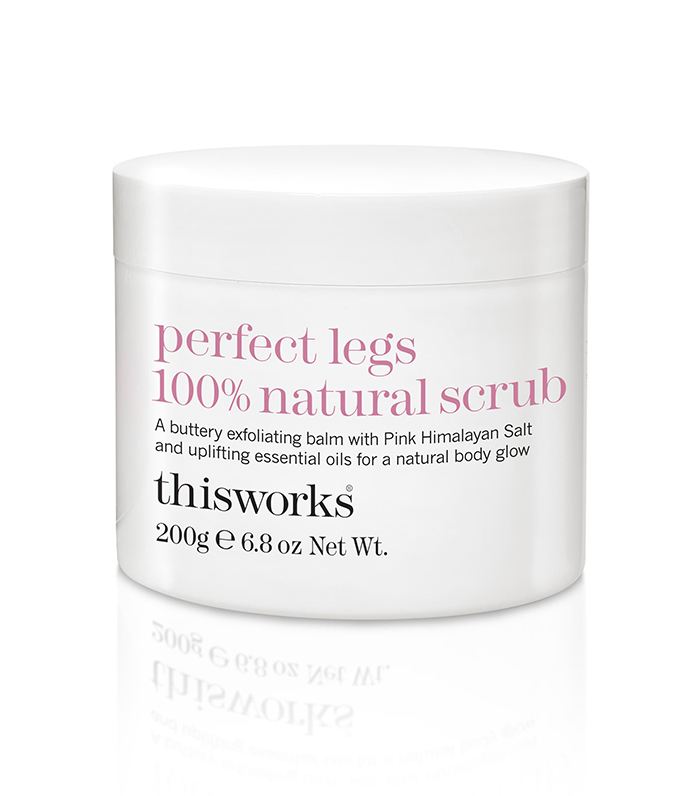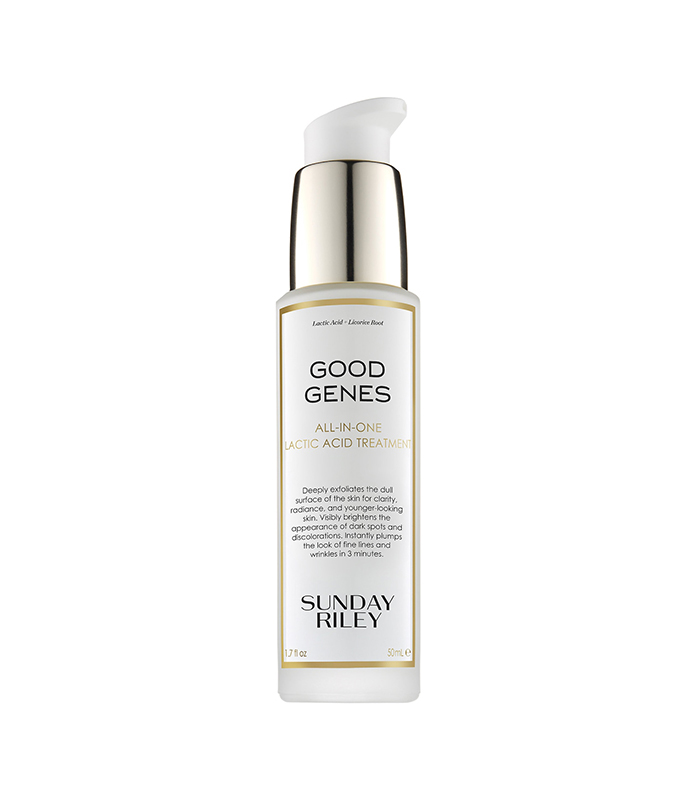Dermatologists Rank the 4 Worst Exfoliating Mistakes
Exfoliation is one of those basic steps in your skincare routine that you know is important. It might even be as second nature to you as the act of cleansing your face. And while you're doing the good work of sloughing those dead skin cells off your face and body, you also might not understand exfoliation completely. So you do it, no questions asked, trusting that your skin is the better for it. For a long time that was my feeling on the subject.
What I didn't know was that exfoliation wasn't just about using a scrub and calling it a day—and it's definitely not a one-size-fits-all type of thing. For people with certain skin types, it can make or break your skin health. So it's important to know more about how to exfoliate for your specific skin needs and what products are personally better effective for you.
To help you (and myself) figure it out, I talked to dermatologists to get more details on the dos and don'ts of exfoliating.
How Important Is it to Exfoliate?
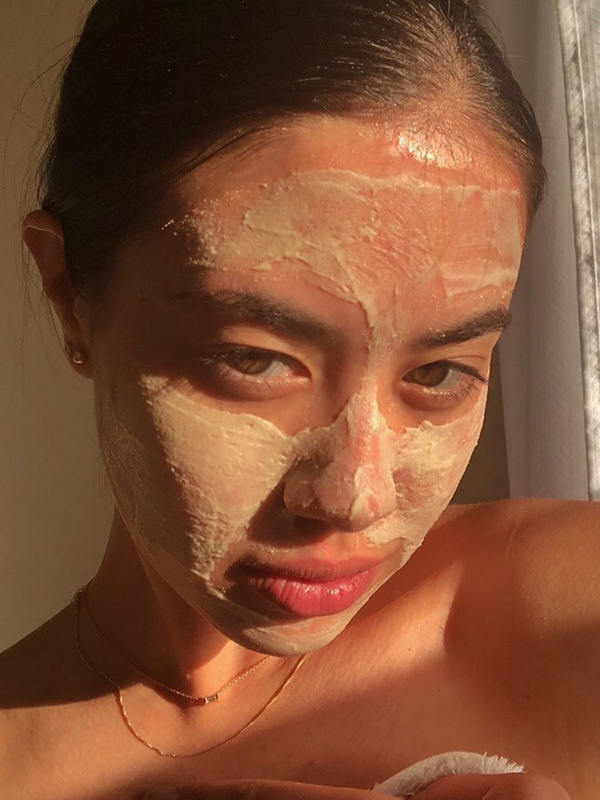
"In general, most people can benefit from some form of exfoliation," explains board-certified dermatologist Joyce Imahiyerobo-Ip, MD, FAAD, and owner of Vibrant Dermatology and Skin Bar MD in the greater Boston area. "Exfoliation may help dull or mature skin appear more rejuvenated. It can help to prevent breakouts in acne-prone skin, and it can facilitate the absorption of moisturizers in dry skin. However, excessive exfoliation can wreak havoc on the skin. To maximize exfoliation's benefits, it's important to understand what type of exfoliation is best suited to your skin type. In addition, it's important to understand the best way to incorporate exfoliation into your skincare routine."
Exfoliation also becomes more crucial as you get older, and can help your skin look more glowy and smoother. Board-certified dermatologist Carolyn Jacob, MD, FAAD, and founder and director of Chicago Cosmetic Surgery and Dermatology, says exfoliating when you're a teenager or young adult helps keep your skin glowing and blemish-free. People at that age have naturally more cellular turnover and greater sebum production, but that changes as the years go by. "Natural cell turnover slows with age which results in pigmentary changes (sunspots), fine lines, and dryness," Jacob says. "Some would say exfoliating becomes even more important at this stage to keep stimulating new cell growth and healthier skin."
Exfoliating Mistakes to Avoid
And while we know why it's important, how do you know if you're doing it right? If you're doing it wrong, it might not be as effective or helpful as you think, and you could even be doing some damage to your skin. I asked the group of dermatologists about the most common mistakes they see people making when exfoliating. Here's what they said to watch out for.
Scrubbing Too Hard
While it might feel so satisfying to scrub your heart out, a gentle touch is best. "Over-scrubbing is not wise as it causes inflammation and can worsen many conditions like acne, rosacea, and sensitive skin," Jacob says.
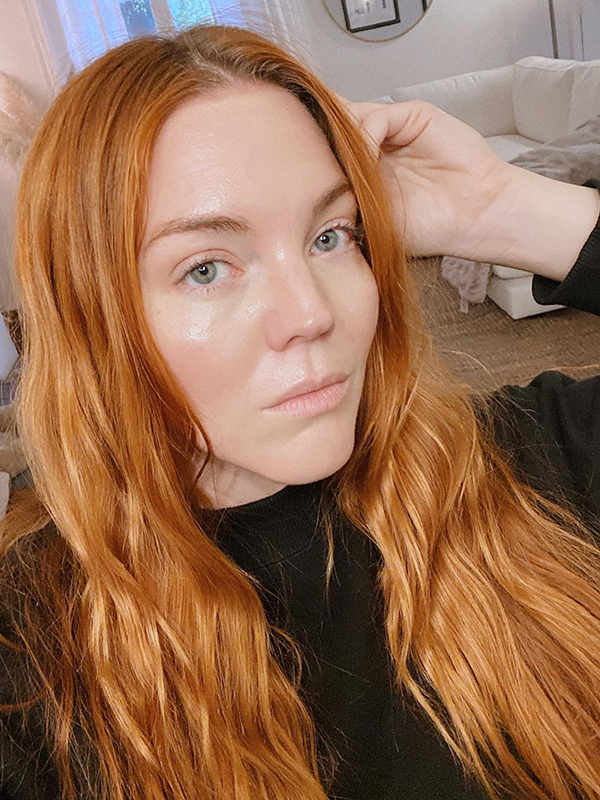
Depending on your skin type, you might need to cut back on how often you exfoliate. Imahiyerobo-Ip says over-exfoliating is one of the biggest mistakes she sees in her practice. She adds that it can wreak havoc on the skin and can cause extreme skin sensitivity, worsen acne, and cause inflammatory rashes. Her advice? Less is more.
Not Using the Right Product
Pay attention to the exfoliant you're using and what part of the body you can use it on. Jacob said that another mistake is using a body product on your face. The body's skin is different from your facial skin, so these products can be formulated differently.
Forgetting to Moisturize
What you do after you exfoliate makes a difference, too. "The other thing that most people don't realize is the way to properly exfoliate means that after you're done with the exfoliating step that you have to hydrate; you have to moisturize," explains Caroline Robinson, MD, FAAD, board-certified dermatologist, and founder of Tone Dermatology. "So because you're removing skin that's wanting to be sloughed off in the first place, that means you are revealing new skin underneath the surface and that skin needs to basically be babied and you need to moisturize it."
How Often to Exfoliate

All of the dermatologists I spoke to agree that exfoliating too much can harm your skin, so what's the sweet spot for how often you can do it? It really depends on your skin type, but once a week is generally a good starting point, according to Robinson. She says if you don't know your skin type or are unsure of frequency, you can start incorporating a mild chemical exfoliating cleanser or wash into your routine once a week.
If you do know your skin type, then that will help you personalize your routine even more to benefit your specific needs. "Those with dull or mature skin may be able to tolerate more frequent exfoliation," says Imahiyerobo-Ip. "Those with sensitive skin or excessively dry skin may not be able to tolerate exfoliating as much. If you have sensitive skin and you find that your skin burns or stings after exfoliating, that is a sign that you are exfoliating too much. I recommend that those with acne-prone skin limit exfoliation to once weekly. More frequent exfoliation may strip the skin which will paradoxically stimulate oil glands to produce more sebum and more acne."
There are times when you might have to exfoliate more than recommended. For example, when your skin is flakier than usual. "Some people, when they're flaky, they think they're dry and they're afraid to exfoliate," Robinson says. "But if you are noticing that you're literally seeing flakes of skin, then you probably could benefit from more frequent exfoliation in the short term."
Now, if you want to exfoliate your body, you might be able to up the frequency. "The body is less sensitive, so unless you have eczema-prone skin, exfoliation a few times a week can be tolerated for most people," says board-certified dermatologist Heather Woolery-Lloyd, founder of Specific Beauty.
Robinson says the legs, in particular, get drier and flakier, which is partly due to the face that it's further away from the heart and the circulation isn't as great in that area. That being said, you need to exfoliate your legs more frequently. In general, you can assess the different parts of your body and see which areas need more exfoliation than others.
Chemical Versus Physical Exfoliants
It's also important to note that there are two different categories of exfoliants: chemical and physical (or mechanical). Chemical exfoliants normally contain alpha hydroxy acids (glycolic and lactic) and beta hydroxy acids (salicylic), and they're normally sold as washes, peels, and serums. Physical or mechanical exfoliants can be scrubs, beads, and loofahs.
The word "chemical" can sound scary and harsh, but many of the dermatologists I spoke to said that these can be a gentler option compared to scrubs. Yes, it's still okay even if you have sensitive skin. Robinson says that there are many mild options out there, like polyhydroxy acids (PHAs), and lactic and glycolic acids.
When using a chemical exfoliant, Imahiyerobo-Ip advises against putting other harsh chemicals on your face the day you exfoliate. "For example, you wouldn't want to put your prescription acne medication on right after using a chemical exfoliating peel," she adds.
Mechanical exfoliants can be helpful when your skin is flaky, especially if you're dealing with dead skin on your legs or other parts of your body. However, you'll want to take precautions and be gentle. "If you are using a mechanical exfoliant, you want to gently cleanse the skin beforehand and you want to make sure that the skin remains moist/wet in order to prevent microscopic tears in the skin from excessive frictional forces," Imahiyerobo-Ip advises.
How to Exfoliate Your Face

So you already know the basics of exfoliating the face, like how often and the different product types, but there are a few other things to keep in mind. Robinson personally recommends the gentler chemical exfoliants for your face, rather than scrubs or other mechanical products.
If you have sensitive skin or another condition, a chemical exfoliant might be the better option. "Sensitive skin is vulnerable to over-exfoliation," Woolery-Lloyd says. "If you have sensitive skin or eczema-prone skin you should only do gentle exfoliation and no more than once weekly."
In some cases, you can get an in-office exfoliating treatment, like superficial peels that can be applied on a monthly basis, based on your skin type and condition, Jacob says.
How to Exfoliate the Body
For the body, which product category you use is mostly based on personal preference. Imahiyerobo-Ip says that physical exfoliants tend to work better on the body and can be used up to three times a week. Robinson says that if you tend to forget to exfoliate your body, you might want to opt for a chemical exfoliant since it's easy to incorporate into your routine. "The chemical exfoliants tend to be a little milder and they just cause like a really nice gentle exfoliation," she says. "So I think that instead of overthinking it, it's really simple to add a chemical exfoliating body wash into your routine. And starting at that once a week and maybe even more often, and then you don't have to really worry about it."
You'll want to treat your bikini area a little differently than the rest of your body as it's a lot more sensitive. Most of the dermatologists recommend a gentle chemical exfoliant if you're dealing with ingrown hairs or razor bumps.
"When you're prone to ingrown hairs, then you do need a mild chemical exfoliant and you should use it in a circular motion to release the hairs so that they're not wanting to pierce the skin again," Robinson says. "So I wouldn't do any aggressive exfoliating in that area. I do prefer chemical exfoliants and I do prefer the milder ones just because it is an area that is more sensitive. So when you use a mild chemical exfoliant in that area, that's a good place to start if you're prone to ingrowns."
Exfoliating Products We Recommend
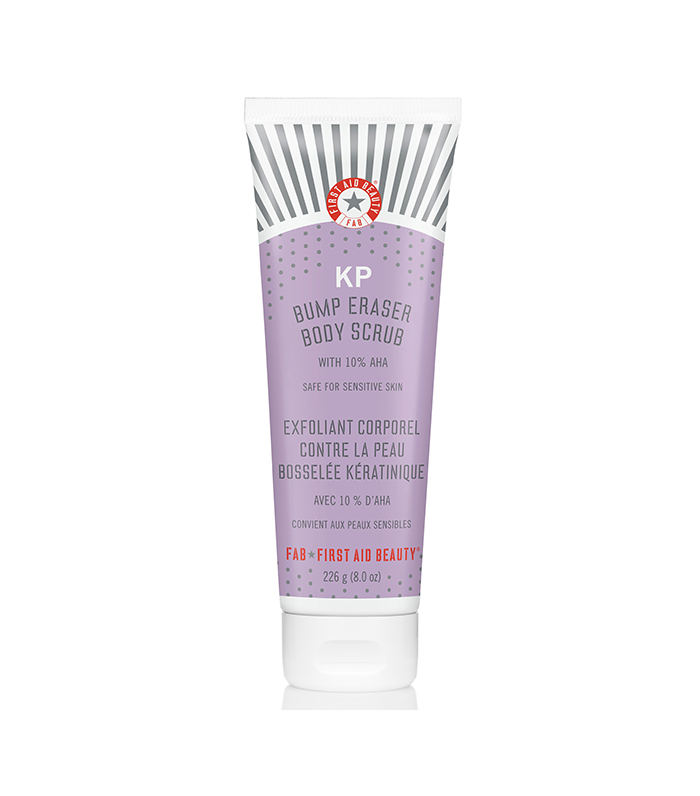
This scrub is a two-in-one: It has glycolic and lactic acids along with pumice buffing beads. You can use it one to two times per week, depending on your skin type.
Next up, this sunscreen mistake is easy to make—here's how to fix it.
Sarah is lifestyle writer and editor with over 10 years of experience covering health and wellness, interior design, food, beauty, and tech. Born and raised in Los Angeles, she attended New York University and lived in New York for 12 years before returning to L.A. in 2019. In addition to her work at Who What Wear, she held editor roles at Apartment Therapy, Real Simple, House Beautiful, Elle Decor, and The Bump (sister site of The Knot). She has a passion for health and wellness, but she especially loves writing about mental health. Her self-care routine consists of five things: a good workout, “me” time on the regular, an intriguing book/podcast/playlist to unwind after a long day, naps, and decorating her home.
